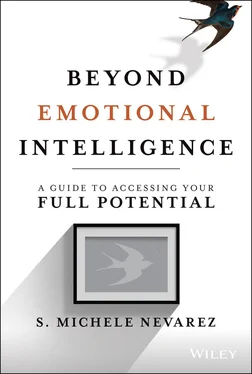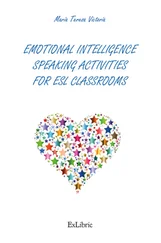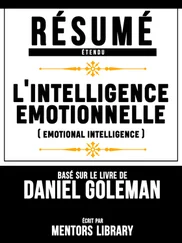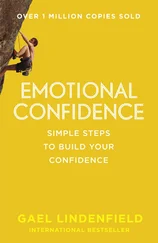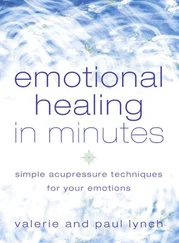Given the incredibly complex and nuanced nature of perception both from a physiological and psychological perspective, I've taken the liberty of putting together a working model that attempts to capture the perceptual process along with its outcomes. I refer to this as the value stream map of perception (VSM) . In case you are wondering what a value stream map is, it's a methodology derived from the discipline of Lean process management and is meant to visually map a process from beginning to end. It is a clever mechanism that allows us to see the big picture and pertinent details in a single visual snapshot. It's an ingenious way to conceptualize and study the elements of any given process and to be able to visualize the otherwise invisible relationship between each step, obstacles to flow, efficiencies to be gained, redundancies, and opportunities for optimization. It enables us to conceptualize what has been right before us all along but has been both too close and too distant for us to see and aptly relate to. By depicting what is otherwise inaccessible to us, we can start to see patterns, themes, and nuances—pointing us toward the inner workings and potential of any given system. With perception and our habits of mind at the center of our inquiry, we can start to uncover where we may consistently be getting hung up or derailed and, in turn, where we have direct and indirect influence on the process.
What could be more important than our ability to influence our own outcomes? I can't think of anything more relevant or important than exercising whatever measure of influence we have over what we think, say, or do in response to our perceptions. Can you? In this book, I introduce you to the mechanisms underlying your patterns of perception and how you habitually make sense of what you perceive. By becoming both an observer and witness to what is operative underneath the results you're consistently getting in your life and in your relationships, you'll practice paying attention to the meaning you attribute to your own experiences. In so doing, you'll learn where the potential exists to influence your own behaviors and habits that might otherwise remain unconsciously ingrained, including those aspects of perception that are preconscious. As you're able to spot and exercise what you have influence over relative to your own experience, you'll be in a better position to act in accordance with what matters to you most. Assuming having influence and efficacy in your own life are important to you, you're in luck because that's exactly what this book will give you—practices that allow you to regain the stronghold of your own mind.
With those objectives in mind, you'll have a chance to investigate where your interpretative overlay may be more of a stumbling block than it is helpful. You'll see where you have the wherewithal to act upon each inflection point, those discrete moments of possibility between what your brain curates for you by way of your perceptions and what you, in turn, make of each of its clues. We have the choice of whether to continue reenacting habitual ways of navigating the vicissitudes of life or to take a step in the direction of what may serve us and those around us better. With each step, the invitation will be to sharpen your own powers of observation, to unearth and piece together your habits of mind, and to engage the introspective and observational capacities of your own awareness. Through rigorous self-discovery, you'll practice employing the internal wisdom you have at your own disposal while exposing the deleterious effects of how you habitually make sense of your experience and learning to cultivate more conducive ones. As you gain insight into how to uncover and work with unhelpful mental patterns, you'll experiment with new ways of producing better responses and outcomes, ones that bring more benefit than they do harm and help more than they hinder.
1 1. Minding refers to how we perceive and pay attention, using our mind’s own awareness and powers of observation.
Introduction: Out of Sight, Out of Mind
In the same way scientists discovered an entire ecosystem of microorganisms living within a single drop of water, we can each discover the universe of possibilities percolating within us, a dynamic display just ready to express itself in any number of ways and combinations. As Leonard Mlodinow writes in his book Elastic , the magnificence of the human brain lies in its ability for “bottom-up” or elastic thinking (Mlodinow, 2018). This is the kind of novel and creative thought process that has at its beck and call a seemingly infinite number of possible connections it can draw from, resulting in unique ideas and unexpected creations. The brain's capacity for free and nonlinear association is still more of a mystery than not and hasn't yet been successfully replicated outside of the stomping grounds of the human skull. In the same way the brain's capacity for elastic thinking has given rise to humanity's greatest inventions, our brain has the unique and unparalleled capacity to simulate its own reality, casting predictions that piece together the fundamental ingredients of perception itself. While we each have the experience of leading our lives out in the world, in fact we live our entire lives from the cockpit of our own minds .
Despite the fact that it seems we're strictly responding to stimuli on a reactive basis, contrary to how we experience our own perceptions and emotions, the brain is thought to proactively simulate its own version of reality. According to the latest neuroscience research, the brain draws on its prior experiences to predict what will happen next, anticipating how we will need to respond. Our brain makes real-time adjustments to its estimations to account for its own prediction errors and metabolic requirements by factoring in input from our senses as well as our interoceptive sensations. Words and concepts are the brain's currency for making sense of its own perceptions relative to what it anticipates will happen next and how we will need to respond in a context-appropriate manner. Lisa Feldman Barrett has written extensively about the brain's functioning relative to each of these topics in her book How Emotions Are Made (Barrett, 2017). It's a book I highly recommend to those interested in delving into the latest research on the neuroscience of emotion. In the following chapters, we explore the practical implications of what all of this may mean, and how this relatively new way of understanding perception and emotion as constructed experiences invites us to rethink and reenvision what it means to be emotionally intelligent. As we navigate the territory of our own mind, we will surface what's at stake and where we have wherewithal and agency within the context of perception itself.
Beyond Emotional Intelligence approaches the topic of habit change from an intrinsic perspective, introducing you to cognitive and contemplative practices for identifying and working with your own habits of mind. This is a fancy way of saying you'll learn how to use thought to change thought and awareness to change everything, starting with your perspective. The focus of this book is to help readers connect with what they have available within themselves as their primary means—qualities they don't have to go somewhere else to find, starting with their own awareness and capacity to perceive. By developing your inner coach, the source of wisdom from within, you access the aspect of your own mind that is inexhaustible and always present for you to connect with. Only through awareness do we have the possibility for our actions to be consciously derived and our intentions purposefully acted upon. Our ability to shift our perspective and relate to our circumstances in the moment is dependent on our capacity to activate the rudder of our own minds.
Читать дальше
